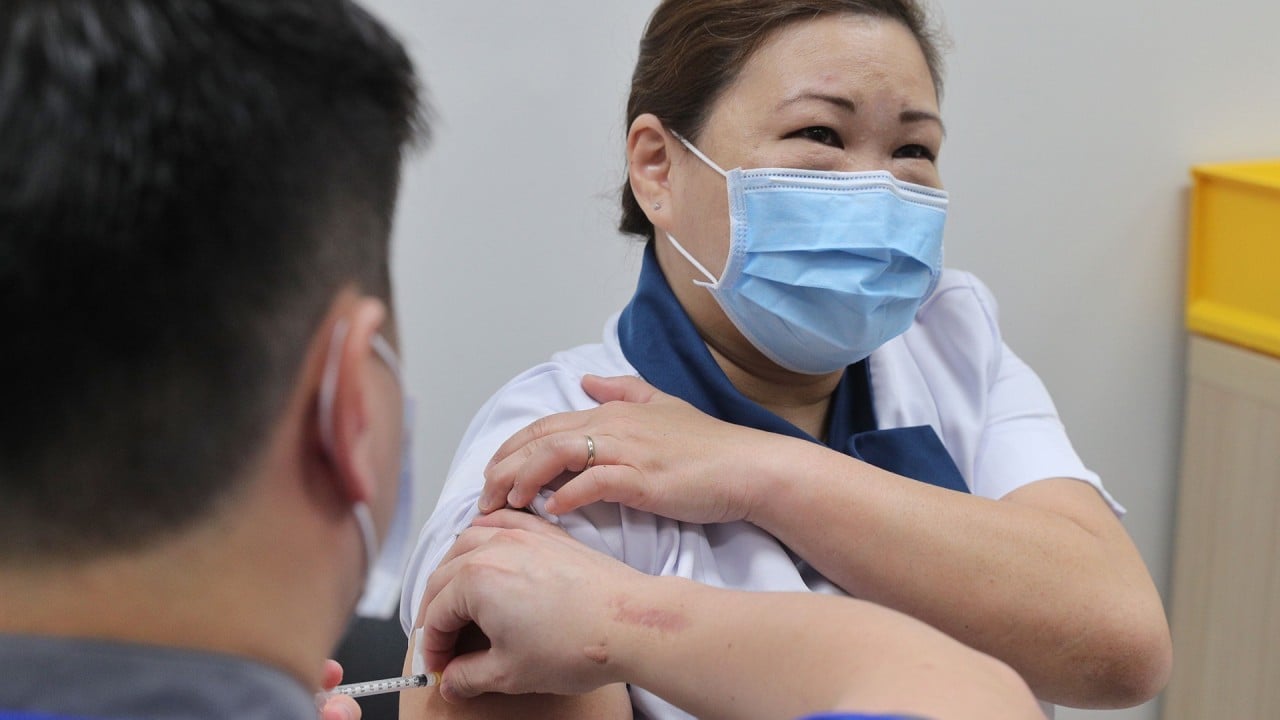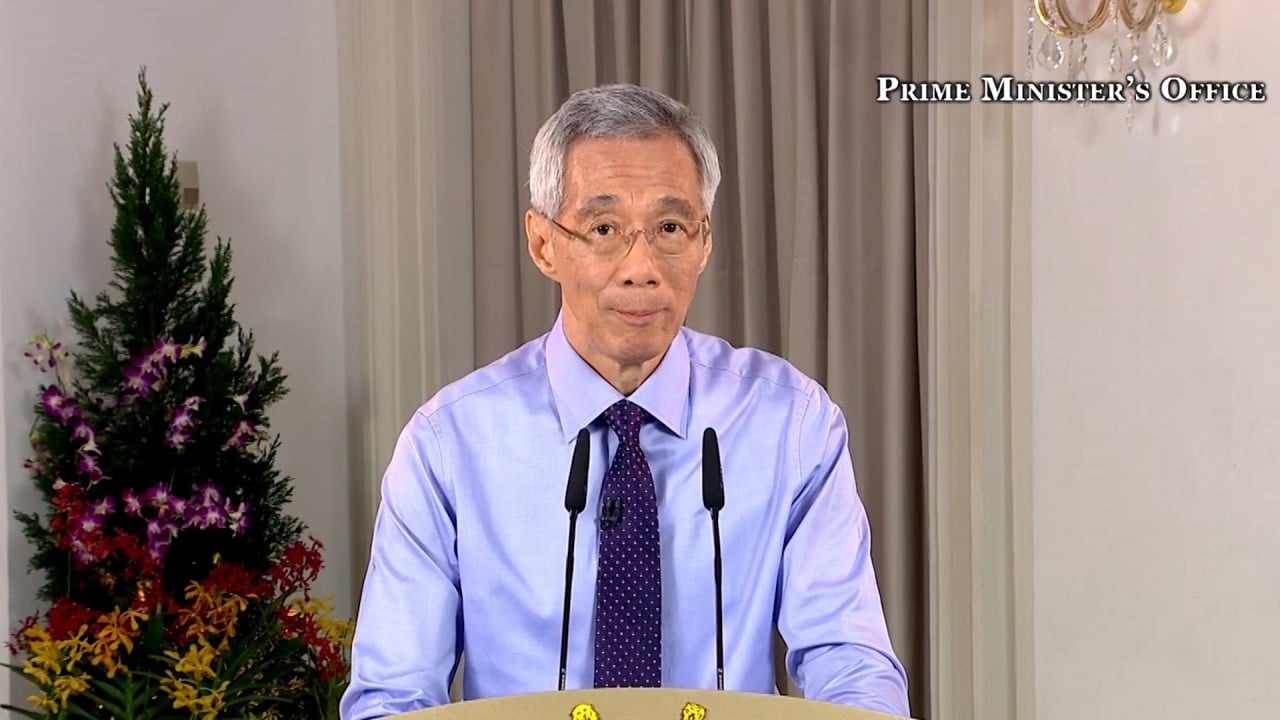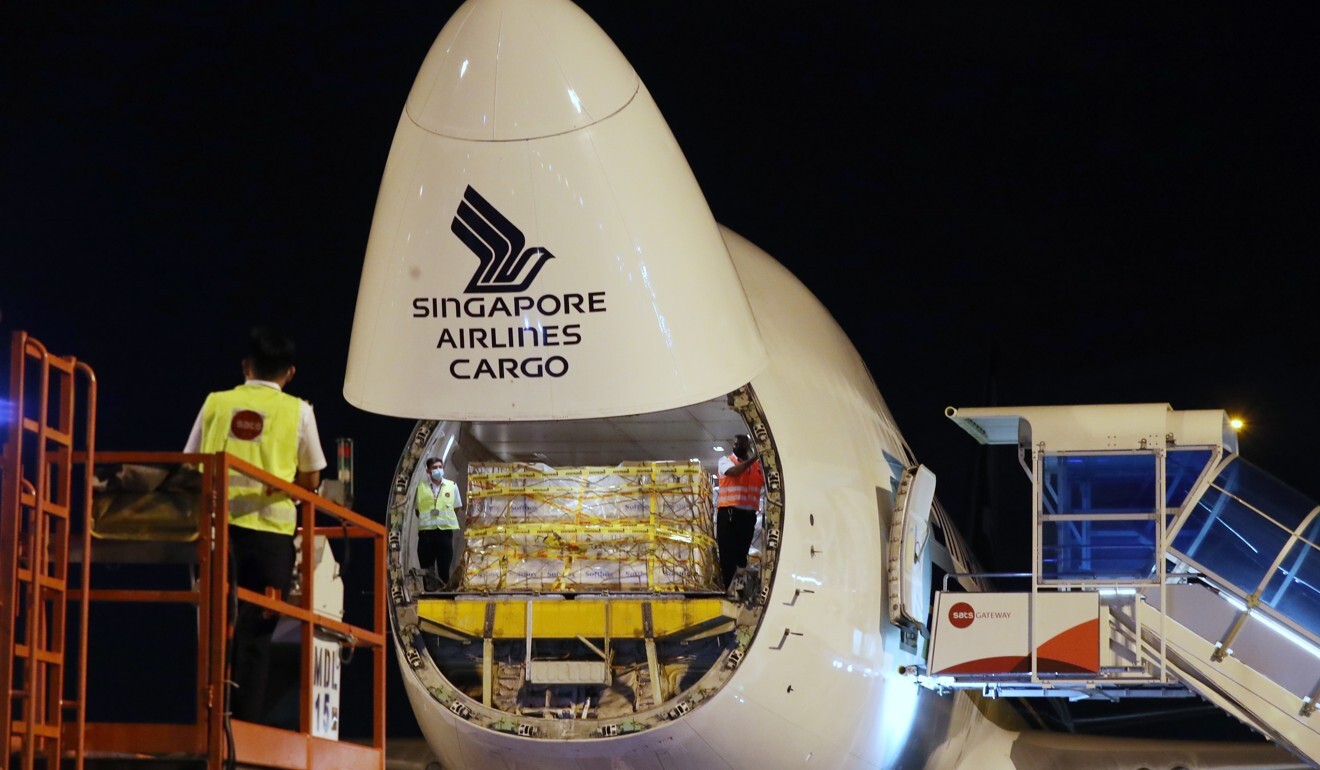
02:03
Singapore begins national Covid-19 vaccination programme

The 5.7 million citizens and long-term residents of Singapore eligible for a free Covid-19 vaccination will not be able to choose which shot they take, as this would “unnecessarily complicate the already complex vaccination programme”, the country’s health minister said on Monday.
Instead, authorities would allocate the vaccines based on what was available, and what was assessed to be suitable for recipients, based on their medical history and other factors, Minister Gan Kim Yong said.
“Anyway, in the immediate term, only the Pfizer-BioNTech vaccine has been approved for use. So there is no choice,” Gan said in parliament, adding that the national regulator was evaluating the safety and efficacy of vaccines by the American drug firm Moderna and China’s Sinovac Biotech.
Besides, he said, the other vaccines had not yet been approved. “My advice is, ‘Don’t wait for them, because we do not know when they will be available. And we also do not know when [and] whether they will be approved,” he said.
This was the first time a parliament sitting had been live-streamed.
With a variety of manufacturers having developed coronavirus vaccinations, countries and territories across the world have been faced with a debate over whether people should be given the right to choose which shot to receive. Such debates have been fuelled by comparisons between vaccines, their efficacy and side effects and even dosage regimens.
Hong Kong, which has secured doses of the Pfizer-BioNTech, Sinovac and Oxford-AstraZeneca vaccines, the government recently said residents would be allowed to choose which vaccine they wanted to take. The announcement followed concerns that some residents would resist taking a vaccine manufactured by a mainland Chinese firm.
Singapore has already received its first batch of the Pfizer-BioNTech vaccine and has begun inoculating frontline health care workers. The inoculation programme for people older than 70 will begin next month. Priority will also be given to people in jobs where the risk of a super-spreading event is high, such as those in the construction and marine sector.

02:03
Singapore begins national Covid-19 vaccination programme
Gan urged people to be vaccinated, saying this would allow the economy to return to normal but stressed the programme would be voluntary. In the past two weeks, Singapore has reported just 11 infections in the community compared to 264 that were imported.
Gan said while vaccines approved for use would have met stringent safety requirements and were suitable for people older than 16, for peace of mind there would be a financial assistance programme for anyone who suffered a serious adverse effect from the vaccines.
Each person vaccinated would be given a card stating when to return for a second dose, if necessary, the date the vaccine was given, and brief post-vaccination advice. The vaccination would also be recorded in the National Immunisation Registry.
Responding to questions from members of parliament about the after-effects of the vaccine, Gan said experts had assessed that side effects – such as pain in the injection site, fatigue, fever, muscle aches, or headaches – “usually resolve on their own in a few days”.

02:29
Singapore first in Asia to approve Pfizer-BioNTech Covid-19 vaccine
Government surveys have shown that almost 60 per cent of people would get vaccinated if a vaccine was available in Singapore, while about a third would prefer to wait for more data before deciding.
Gan reiterated that the cabinet would be among the first to receive the vaccines in a show of confidence for the process.
In some countries anti-vaccine sentiments have helped spread fake news stories about people dying after receiving shots and claims that the vaccines do not really exist.
While such rumours have gained little traction in Singapore, Gan urged people to refer to official or credible sources of information and not to share unconfirmed ones. He referred to claims that six people had died during the Pfizer-BioNTech vaccine clinical trials, and said that only two of those who died had been given the vaccine while the other four had taken the placebo. He said there was no link between the vaccine and the two deaths.
Gan said taking the vaccine would protect people who could not be vaccinated due to medical reasons and urged Singaporeans not to be complacent because the local situation appeared under control. “The best time to vaccinate is now. If people wait till an outbreak has happened to get themselves vaccinated, it will be too late, both to protect themselves and to prevent the outbreak in the first place.”
Gan said this was Singapore’s second large-scale vaccination effort. The first was the smallpox vaccination in 1959 when over a million people were inoculated. The scale of the current effort was larger, Gan said.

Also addressing parliament was Lawrence Wong, who is the education minister and also the co-chair of the multi-ministry task force dealing with the virus. Responding to a question on whether quarantine regimes would be relaxed for vaccinated travellers, Wong said it depended on how effective the vaccines were at reducing the risk of transmission.
Vaccinated travellers would continue to be subject to prevailing border measures but the government would “fine-tune our approach over time, once we have understood the effect of the vaccine better”.
Wong added it was “conceivable” that if the vaccinations did reduce transmission risks, authorities could do away with pre-event testings for those attending concerts and other such events, or relax quarantine and testing regimes for vaccinated travellers leaving and returning to Singapore.
Meanwhile, Wong shared updates on Singapore’s test and trace efforts. He said the cost of antigen rapid tests had fallen from S$80 (US$60) per person to just under S$50. The country’s TraceTogether programme – available on smartphones and through a token – now has 4.2 million users.